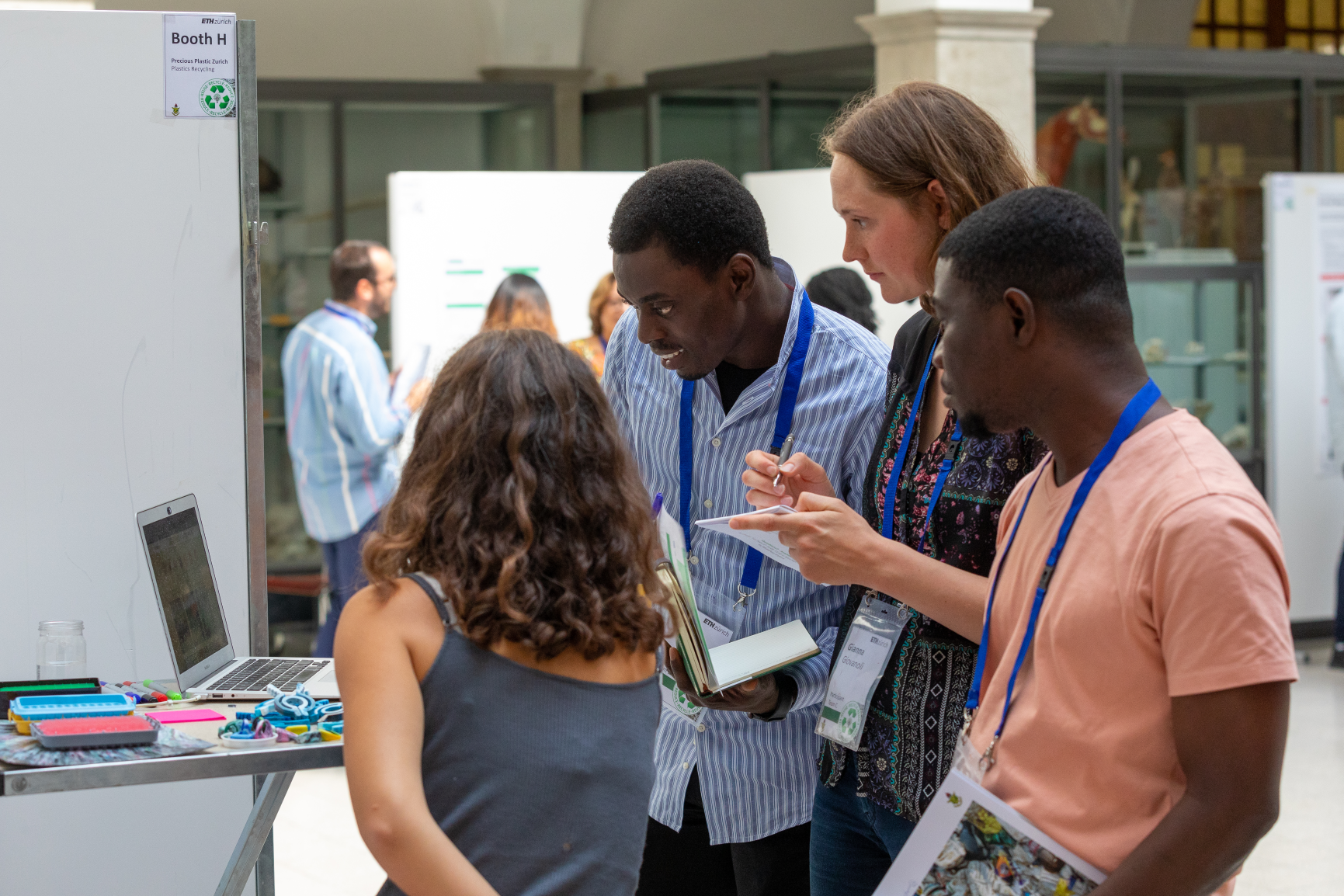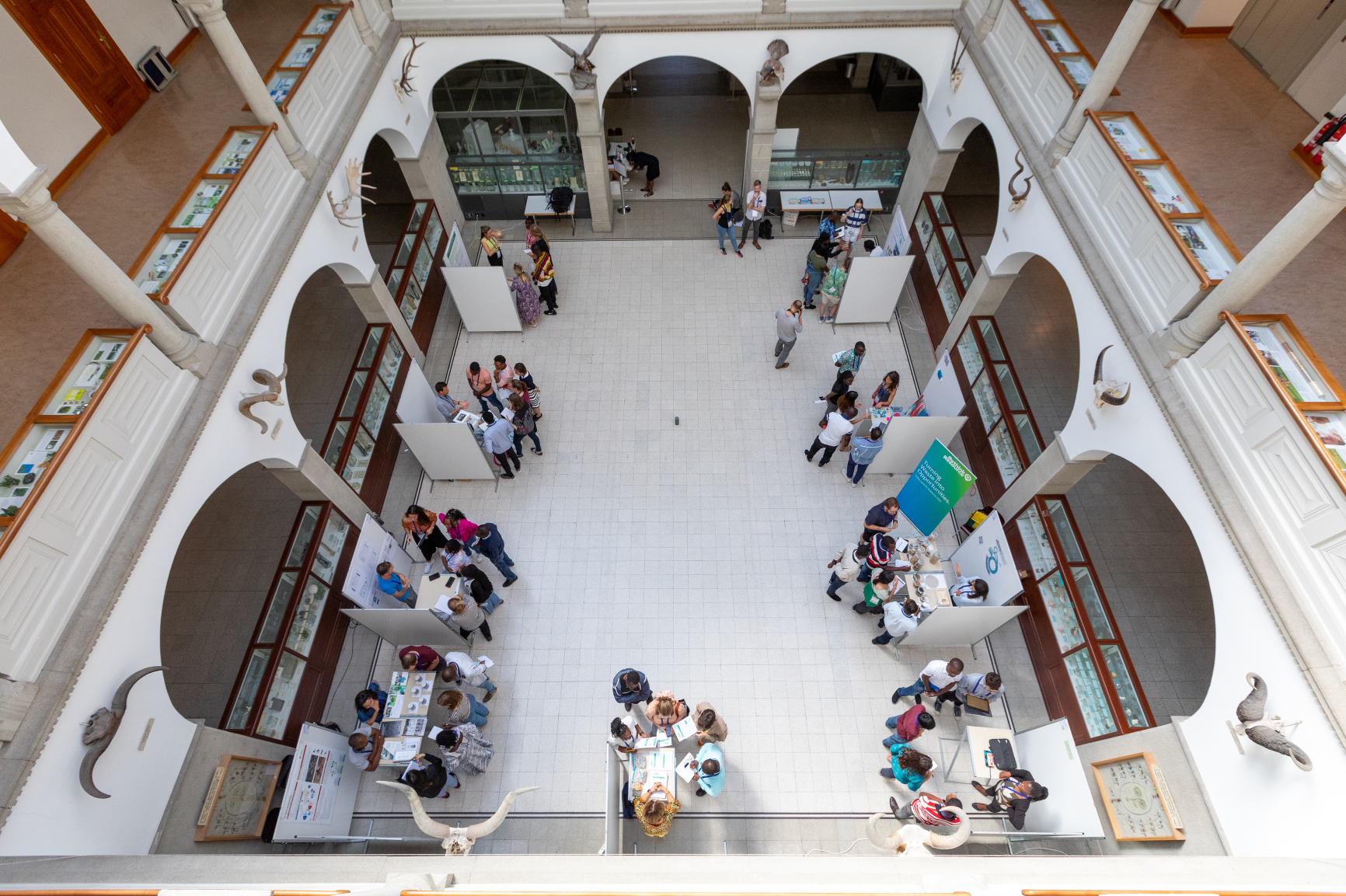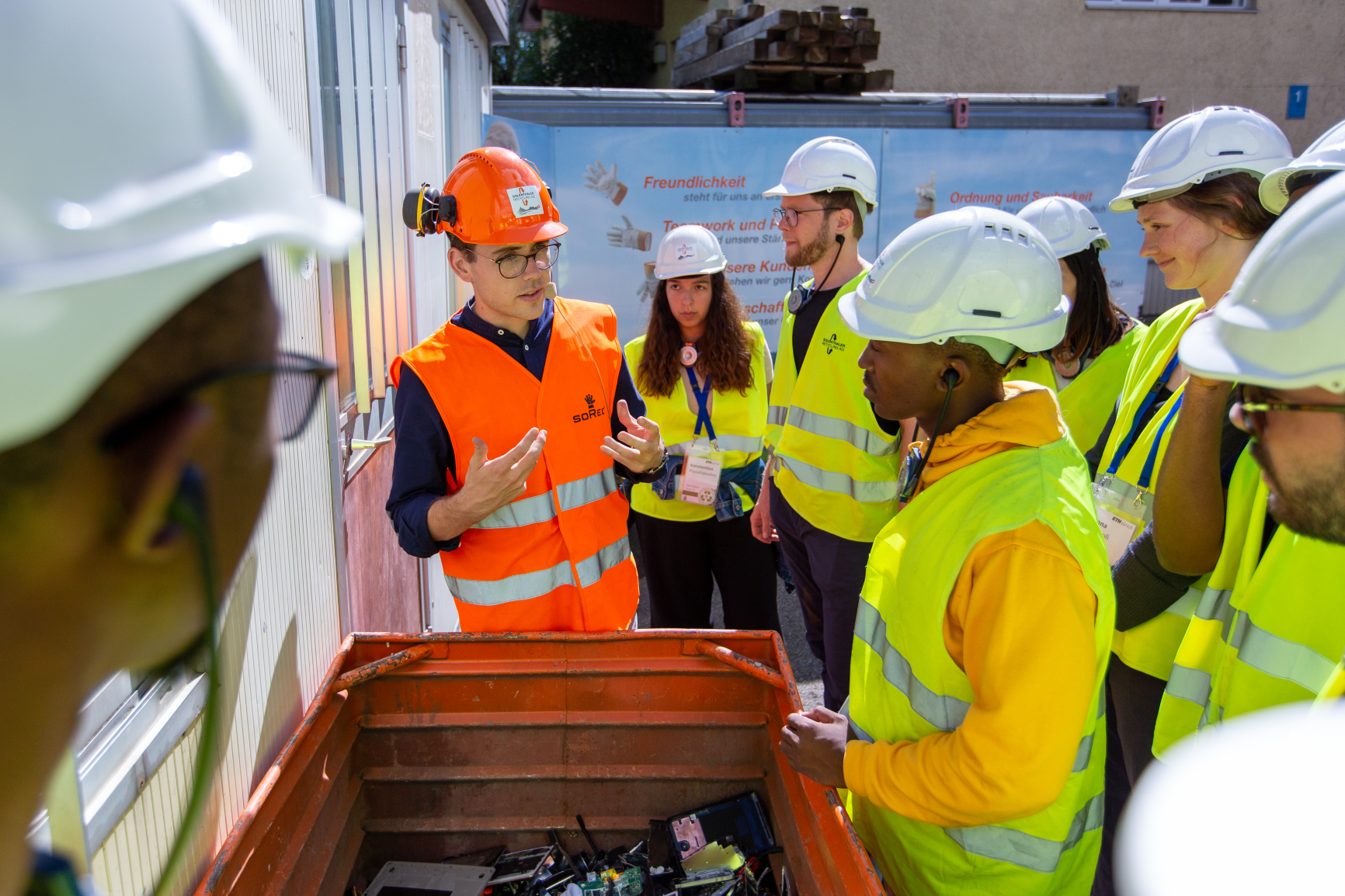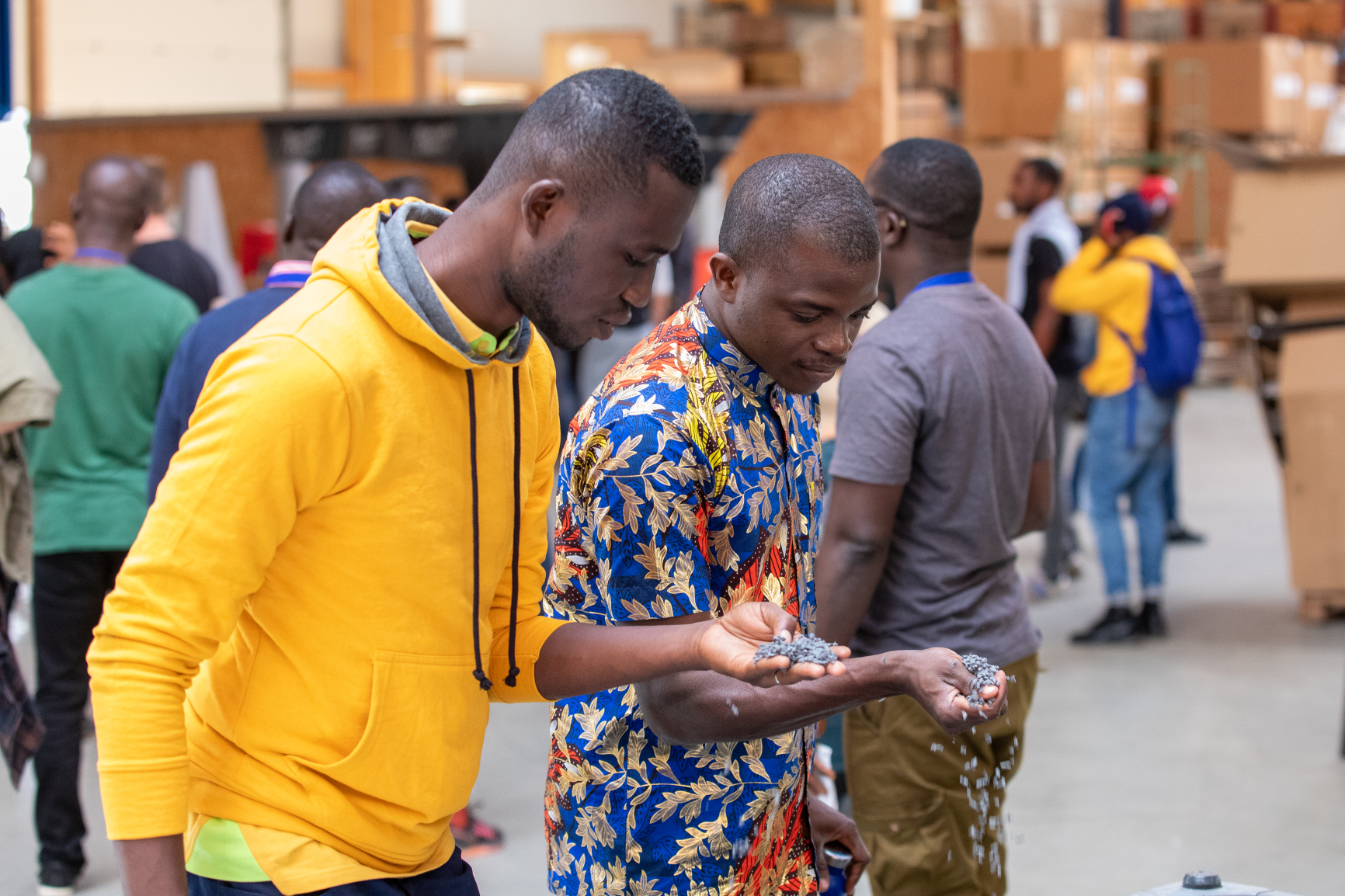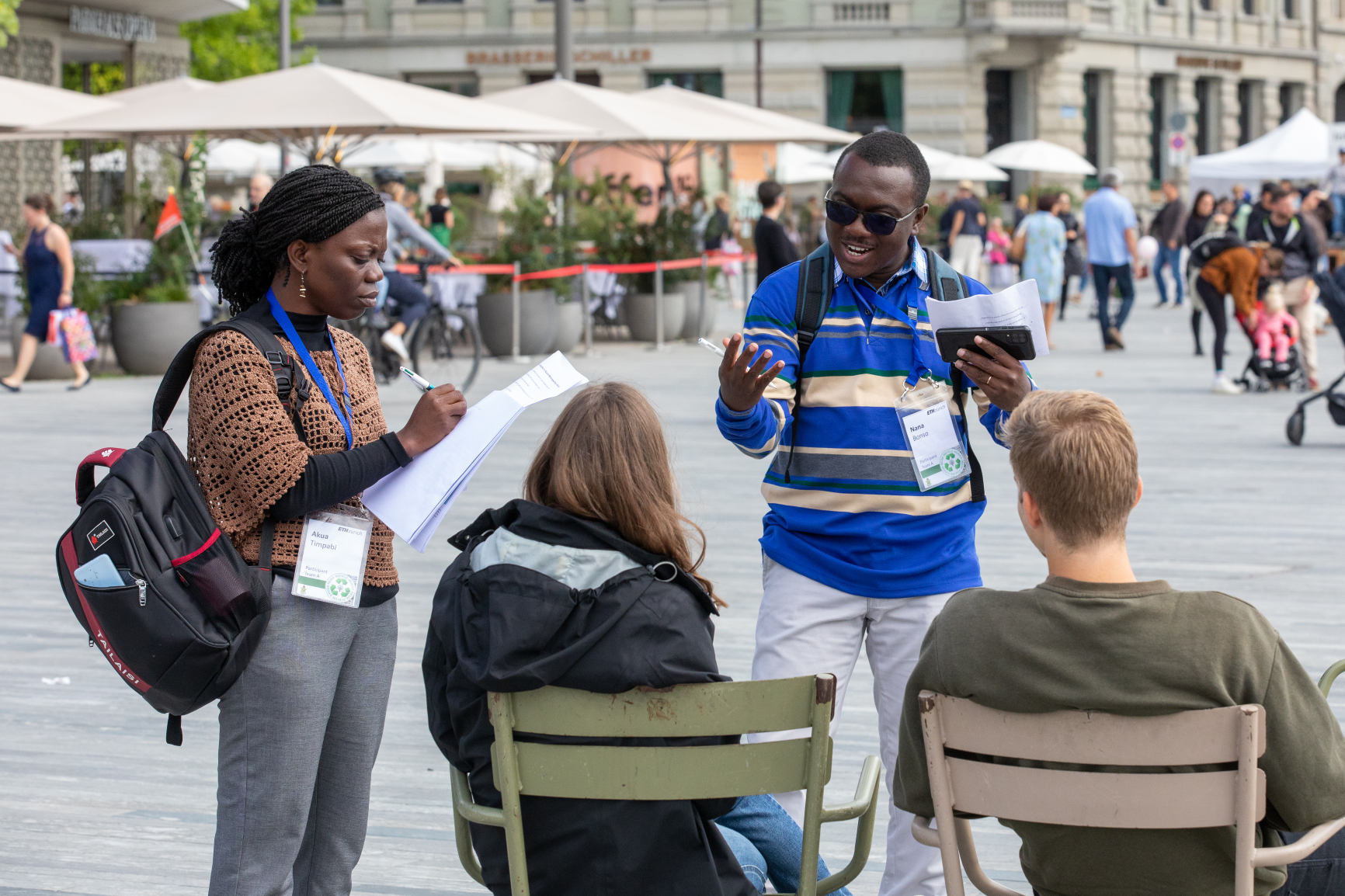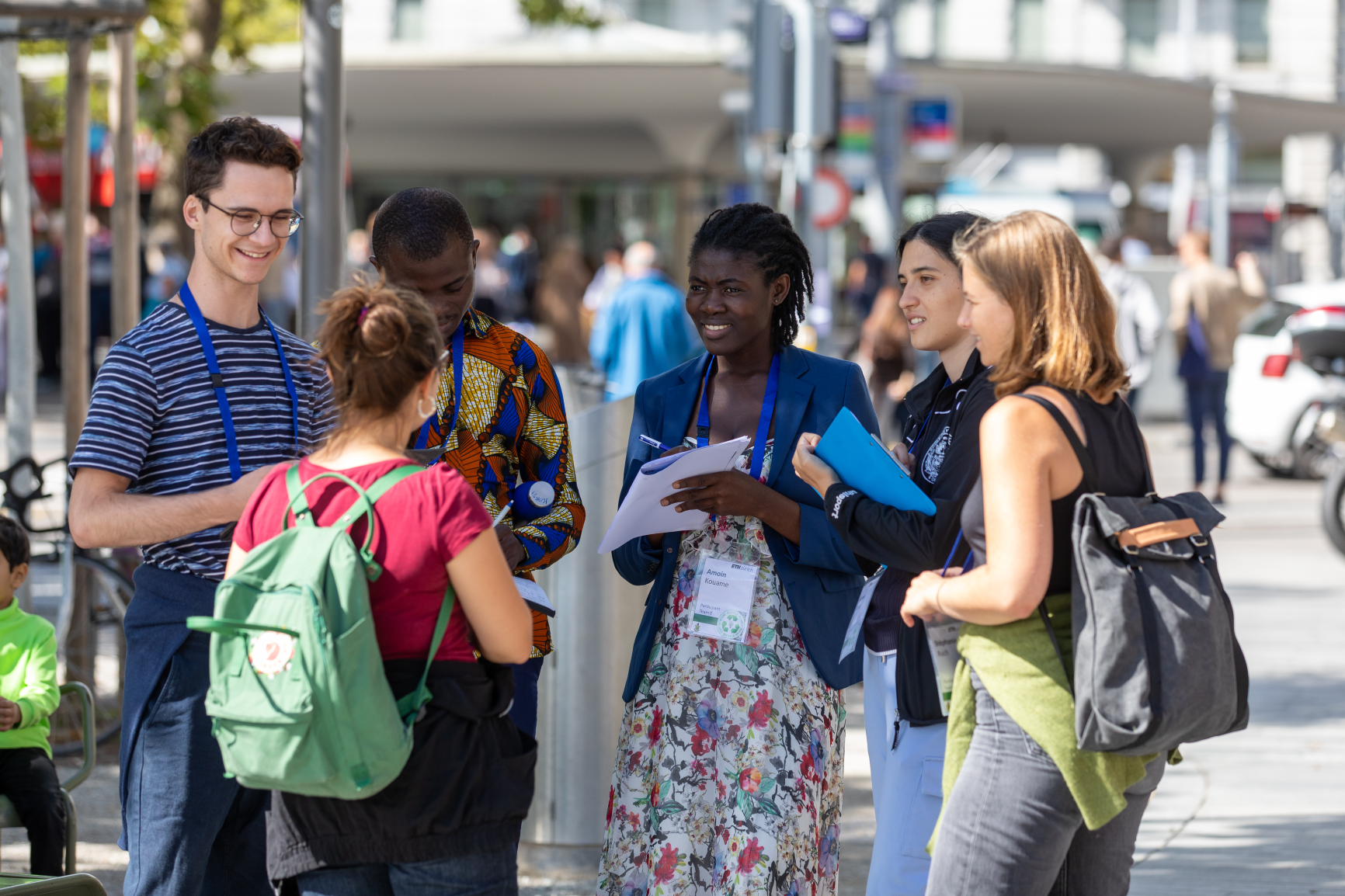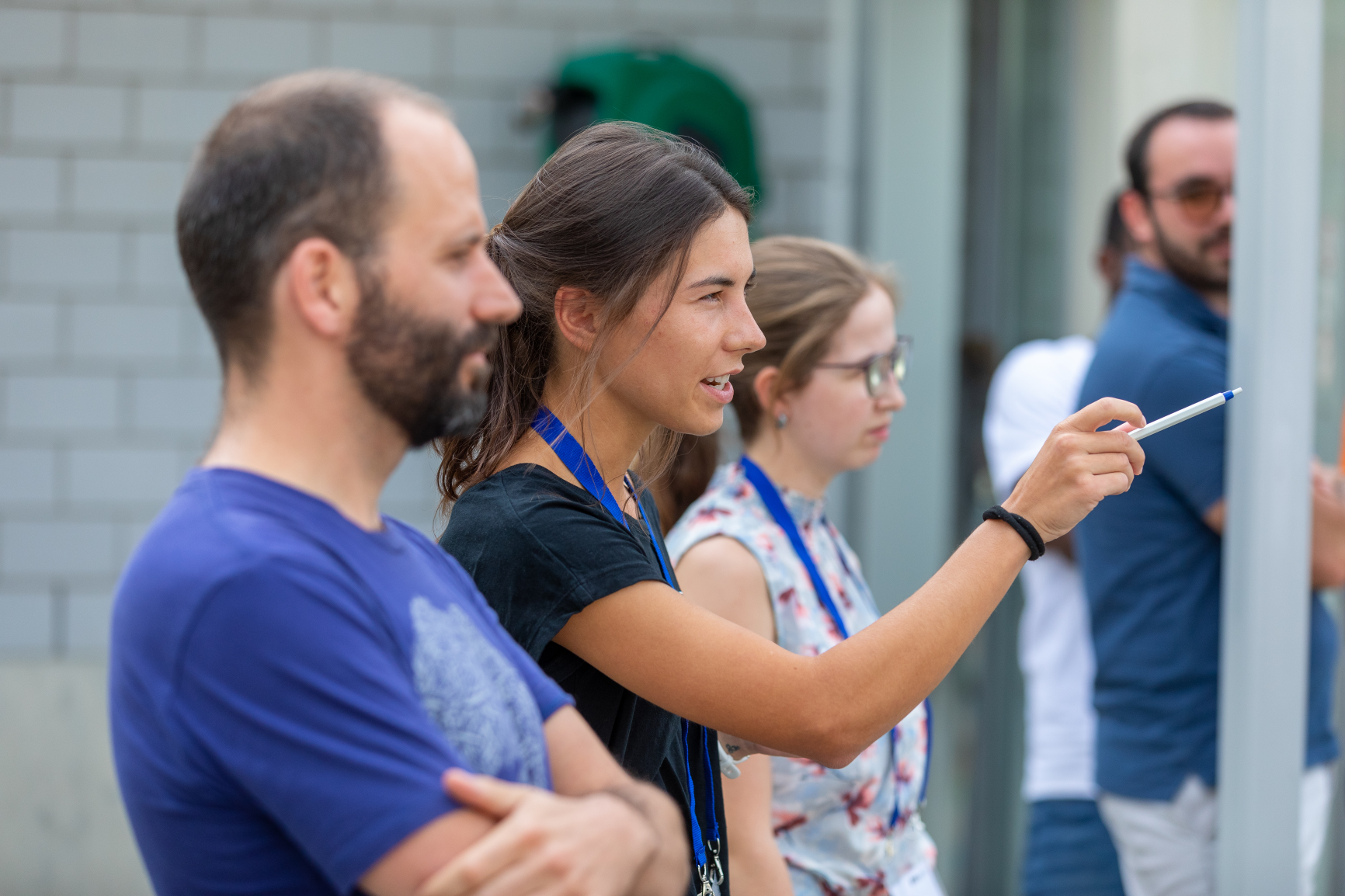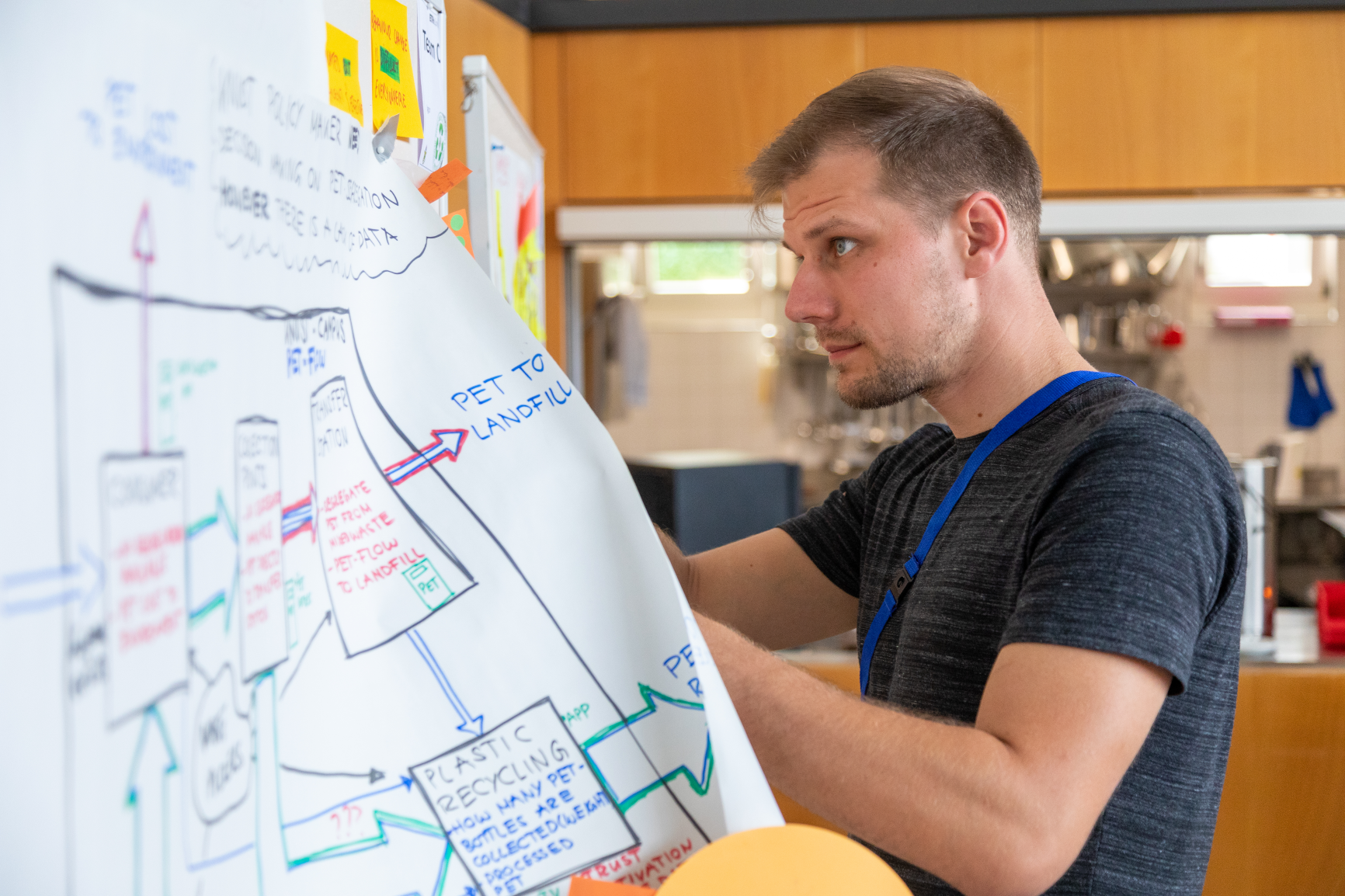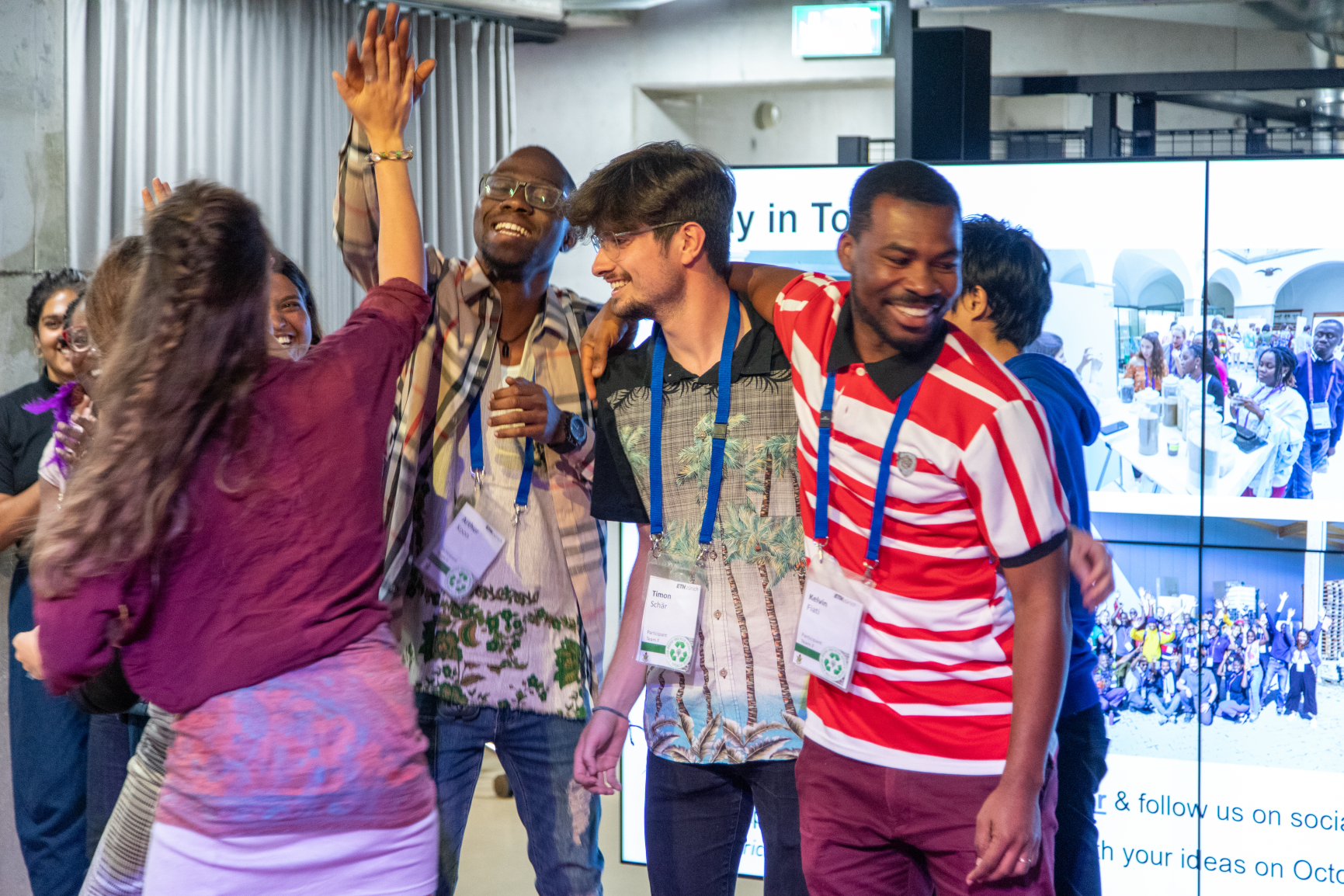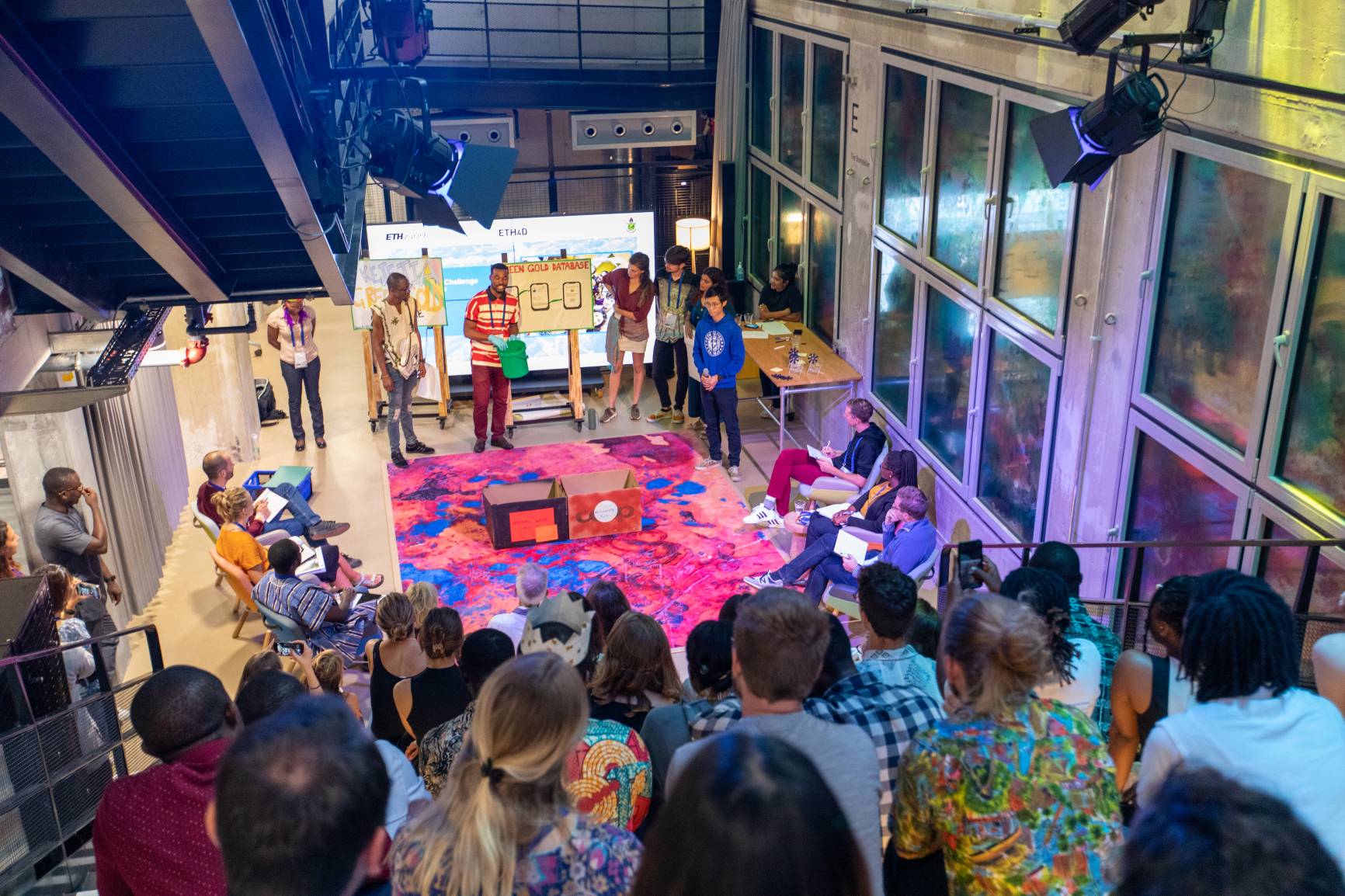A Look Back on the Global Development Summer School 2022 on "Rethinking Waste"
This year’s Global Development Summer School - a collaboration between ETH for Development (ETH4D) and Kwame Nkrumah University of Science and Technology (KNUST) in Kumasi, Ghana - dealt with sustainable solid waste management. From August 31st to September 16th, a total of 48 students from ETH Zurich and KNUST immersed themselves in the topic of waste and worked together to identify feasible solutions that tackle global waste management challenges.
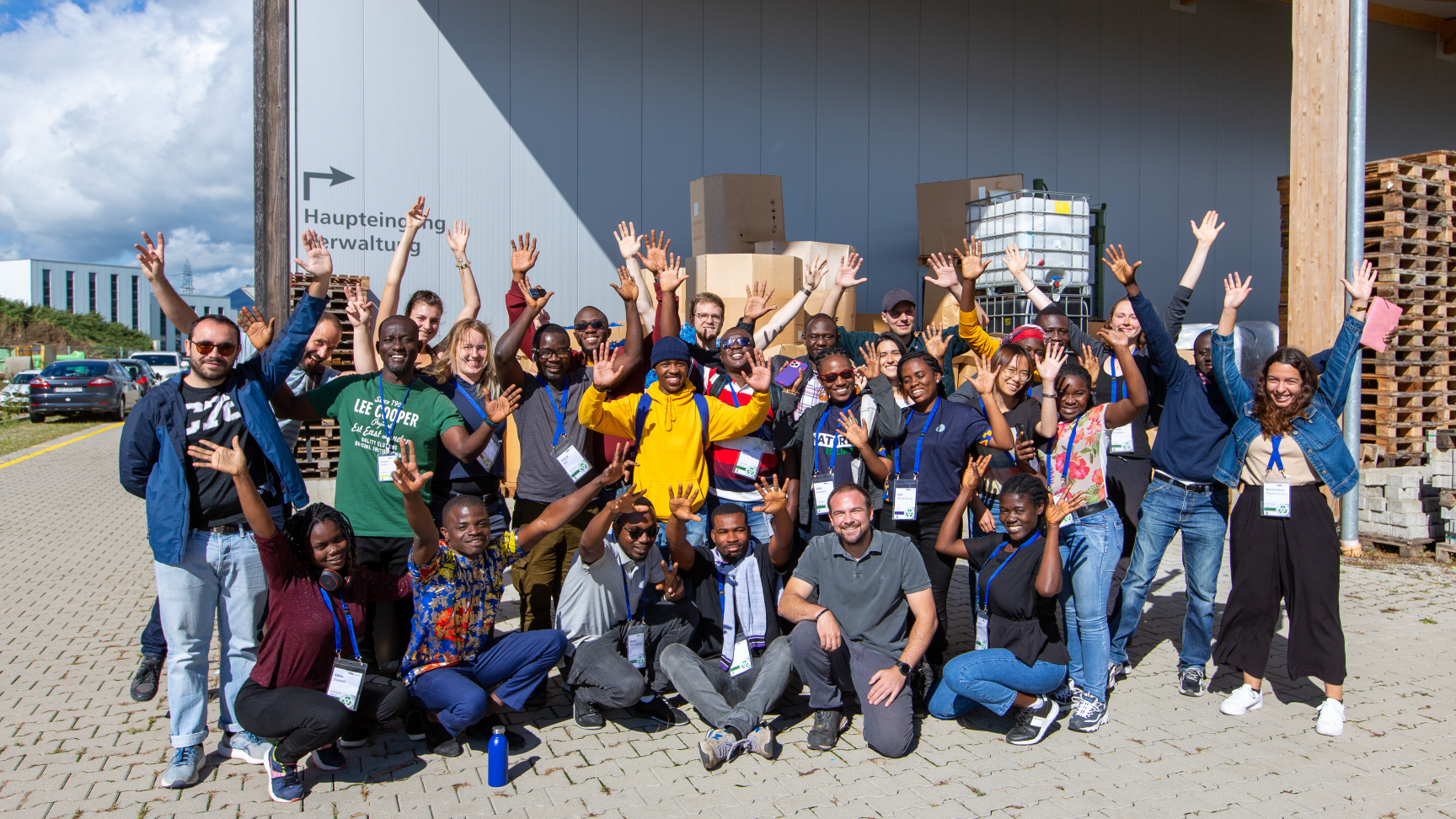
Learning about waste across disciplines and sectors
Theoretical inputs from various lecturers provided an interdisciplinary framework that highlighted the impact of current practices as well as the necessity to reflect on how academia, science and technology influence and interact with society, the environment and economy. Considering the multiple perspectives enabled the students to critically think of holistic solutions to put research into practice.
To deepen their understanding of the different needs and interests across sectors, the students exchanged with experts from academia, industry, NGOs and the private sector at a knowledge fair. On top of that, they conducted expert interviews to further challenge and refine their ideas.
Making real-world connections – field visits and street interviews
Excursions to waste management sites enabled the participants to learn more about the practical side of waste management. The field visits provided insights into plastic, electronic and organic waste management strategies. Harnessing the knowledge of field experts contributed significantly to the development of prototypes that are feasible for practice-oriented implementation.
To assess the desirability and viability of their proposed solutions, the students conducted interviews with locals from the City of Zurich. Learning more about the habits and needs of citizens was an essential component to account for the social dimension of product development.
Putting knowledge into practice through prototyping
After an intense exposure to theoretical and practical inputs, the teams were eager to turn their ideas into their own problem statements and solution sketches. This set the foundation for the rapid prototyping sessions where the students brought their ideas on paper into the material world. An essential component of this part was the continuous process of receiving and integrating feedback from experts and peer-to-peer exchanges. The iterative approach to develop the most feasible version of an initial idea illustrated the value of receiving constructive feedback.
The following three-day prototyping sessions aimed to optimise the feasibility and viability of the solutions. This process enabled the teams to ideate, test possibilities, solve disagreements and learn from each other. After various cycles of testing, adjusting and improving, the six teams were ready to pitch their ideas at the final presentation at the ETH Student Project House. “If someone told me that it was possible to challenge my perception of waste, identify potential solutions, and develop prototypes that are ready to be pitched within the course of two weeks, I never would have thought that this was possible. But that’s what happened, we all did an incredible job as a team!”, says Marie, a participant of the Summer School.
Harnessing expertise across sectors and encouraging critical reflection ultimately set the foundation to rethink waste and develop sustainable solutions that are effective, desirable, viable and globally adaptable. Through the application of design thinking methods, students implemented an iterative approach that aims to reframe challenges in a human-centric way and thus leverages the impact of potential solutions.
We thank the organisers at ETH Zurich and KNUST who made the realisation of the summer school possible. Furthermore, we thank the lecturers, experts, tutors, and participants whose contribution made this a unique learning experience!
Konstantina
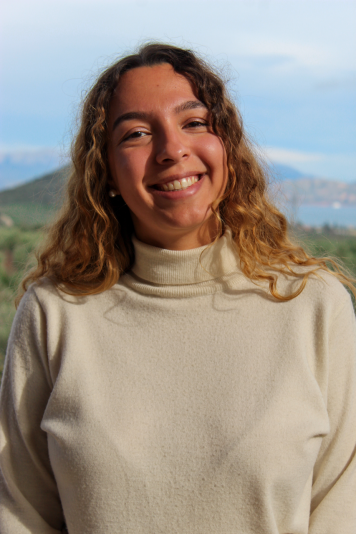
Master student in Environmental Engineering, ETH Zurich
"Participating in the Summer School offered me the great opportunity to exchange knowledge in a multicultural and transdisciplinary environment and develop feasible solutions to tackle global waste management challenges. What I enjoyed most about this experience was the interaction with different cultures as well as the interdisciplinary insights we gained. This is essential to account for the various perspectives that need to be taken into consideration when it comes to the development of sustainable solutions. I highly recommend participating at the Global Development Summer School – not only for the acquisition of knowledge, but also for the multicultural exchange!"
Amoin Marie
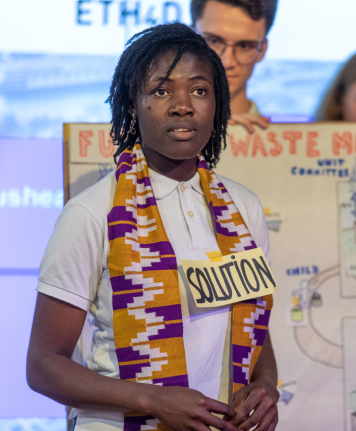
Doctoral student in Water Resources Engineering and Management, KNUST
"The theoretical and practical inputs enabled me to look at waste from a different angle and view it as a resource. The process of rethinking waste not only taught me to challenge my perceptions and beliefs, but also illustrated the value of an interdisciplinary approach that encouraged me to think outside the box. Further, I am amazed by the amount of knowledge I acquired during the summer school. I never would have thought that it was possible to rethink my whole understanding of waste, learn about the challenges and opportunities of waste management, and develop a feasible solution that was ready to be pitched at the end of the programme."
